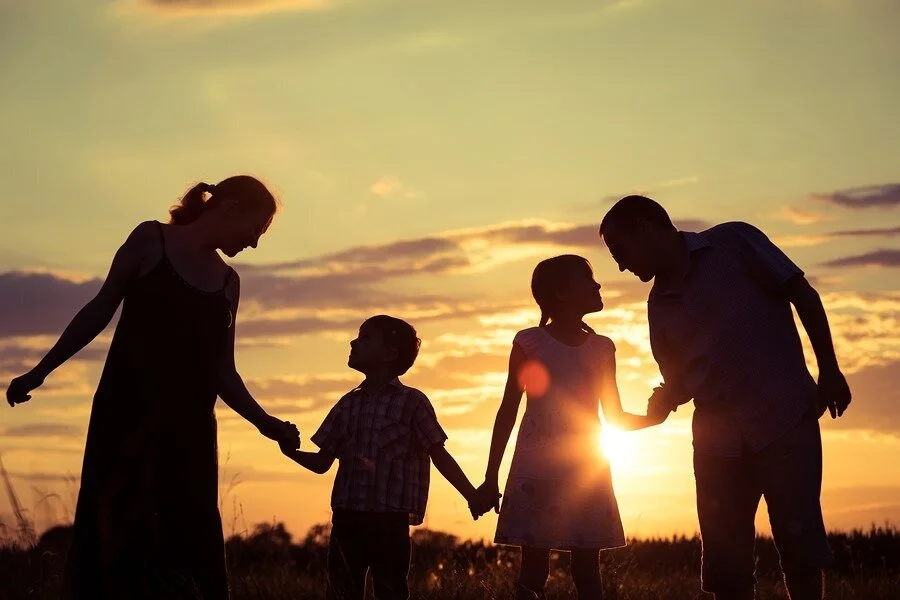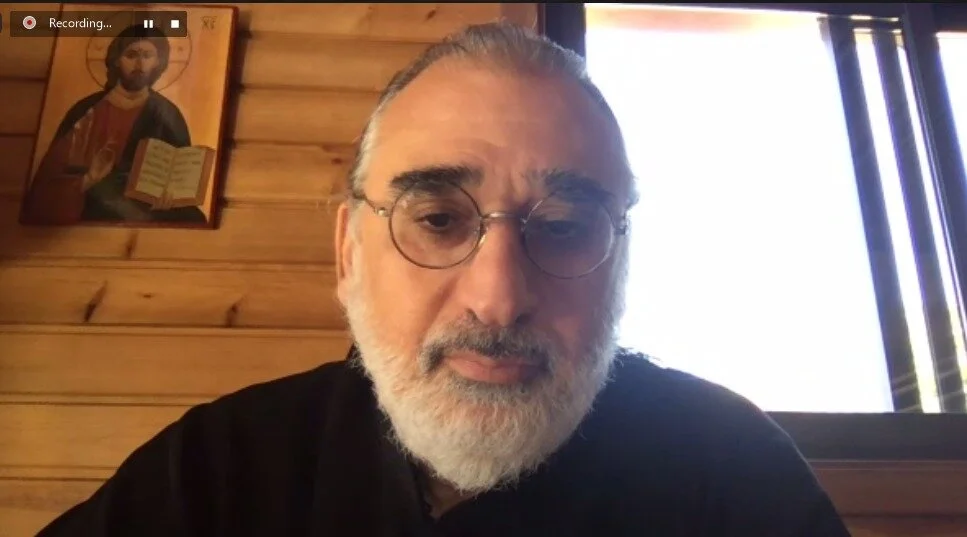On the International Day of the Family and in its Papal Year
Do the Catholic and Orthodox Churches Support Families and How?
International Family Day falls on May 15 of every year and returns this year amid injustice, violence, intimidation and hate speech... but worst of all, a malicious virus from the Corona strain they called Covid-19! A virus that made matters worse, and hit us amid crises and deteriorating living conditions that suffocate families in our Arab world. The family today falls into complications that negatively affect its lifestyle, the interaction of its members, and the extent of their ability to communicate and cooperate together in order to improve the bonds that bind them and thus the development of societies.
Whatever it is, the way you tell your story online can make all the difference.
His Holiness Pope Francis wanted to dedicate this exceptional year to families, hoping that it would give hope to a world that lacks peace, justice, love, acceptance and richness in diversity ... He launched the "Year of Families - The Joy of Love" and opened it on Friday March 19, 2021, on the occasion of Saint Joseph’s Day, calling on everyone to “take a pastoral, renewed and creative push to place the family at the center of the attention of Church and society.”
However, with the work on spiritual and human formation in parallel with the national and cultural formation, what are the challenges that the family faces today in general, and Christian families in particular? What is the importance of raising children on the necessary human values to build a safe society and a promising future? What about the role of the church in accompanying and supporting families?
Head of the Pastoral Office of Marriage and Family in the Maronite Church Father Athanasius Shahwan, Abbot Simon Bou Abdo and Head of the production department at the Antioch Orthodox Center for Media Father Athanasius Shahwan answered many questions in two online interviews with the Communication and Public Relations Department of the Middle East Council of Churches.
His Excellency Abbot Samaan Bou Abdo:
The Church helps families, but it cannot replace the state. It has other pastoral duties
His excellency Abbot Simon Bou Abdo divided the challenges facing families today into two parts. The first part is external factors that enter the heart of the family and affect all its members, while the second lies in the relationship of the husband and wife, and both of them with the children. He explains that families residing in Lebanon face many external challenges due to the economic and financial crises, the quarantine imposed by Corona and its repercussions, the tense political situation, immigration... not to mention the Beirut Port explosion that deepened the wounds of the Lebanese and led to the psychological, economic and social destabilization of families.
Bou Abdo added: “After the August 4 disaster, which was a fatal blow to the Lebanese society, we visited some families in their homes in Beirut from our office in Bkerke and we saw the severity of the reality they faced in the absence of the state, psychologically and socially destabilizing the family.”
As for the internal factor related to the relationships between parents and their children, he said: “We notice a difference in understanding some concepts such as love, sex, communication and dialogue...”. The educational mission is considered one of the most difficult duties and the most basic challenges, according to what he described. "Today we are witnessing new social changes that are reflected in the anthropological change of the human being, and some of them contribute to changing the concepts of the family... Anthropology considers that God created Man, male and female, in his image and likeness, and gave them a mission from the beginning."
Bou Abdo continues to stress: "The family is the only place for peace education, where the individual learns how to deal with himself and others in peace, and to accept a different person, his ideas and attitudes, and thus achieving the same goals with other members of society and families in order to build a promising future...”. Therefore, the family’s role lies in raising children on the basis of living fraternity with all religions and accepting the other as human, citizen and brother.
The church plays a great role in the social, educational and financial service of the family according to Bou Abdo. For example, preparing for marriage became one of the priorities of the Maronite Church within the framework of pastoral service. Family groups in some parishes support and accompany families, along with several programs implemented by the “Listening and Accompaniment” office. such an office is set in Lebanese Maronite parishes to train people to listen and accompany to be able to complete this task along with a team of specialist. In short, "the church helps, but cannot replace the state, which is not providing any services."
From here, the Abbot discussed the role of the Pastoral Office of Marriage and Family in Bkerke, and revealed that it includes logistical volunteers, thinkers, and people who provide their time and intellectual and practical support. He added: "After researching and consulting the Maronite Spiritual Ecclesiastical Court, we saw the need to work on preparing people in order to enhance their capabilities in supporting families in psychological and social crises and difficulties." As for family mediation, the office conducts training and graduation courses for mediators. "For the first time, we have published a book in Arabic under the name 'Towards Listening and Family Accompaniment Centers."
Reverend Father Athanasius Shahwan:
Praying in family makes the child feel that his home is an extension of the Church
From a sociological point of view, Head of the production department at the Antiochian Orthodox Center for Media Reverend Father Athanasius Shahwan spoke about the family, saying: "the family is considered a small community distinguished by its communication with the outside world and inter communication." He also pointed out that "every generation faces its own diseases and challenges, but the only remedy lies in union with the Lord Jesus Christ." He continues: "When a person unites as an individual with Christ, he obtains a triple communication: with God, who lies in communication, with others and with himself."
The biggest challenge in the era of communication, according to Shahwan, is the loss of communication due to closed-mindedness, explaining that when communication with the Lord is cut off, we lack openness to others and refuse to communicate with them. From here, he concludes that what applies to the individual also applies to the family, stressing the need to reconnect with God, to reflect this relationship with him in our relationship with each other and with ourselves.
As for education, the child receives it on many different levels, according to what Father Shahwan explained. On one hand, through school and academic curriculum, and in social mixing through building bonds of friendship... and on the other hand, at home through education provided by parents. All these factors are experienced by the child in a developed world through the Internet, computers, cell phones and television screens... all of which contribute to building his personality.
However, controlling all these factors is achieved, according to Father Athanasius, in the first stronghold, that is, the family. “It is important for parents to live the word of God even if just a little bit through their behavior and their relationship with others and their children. However, the individual factor starts to show when family members lose communication and dialogue among themselves as a result of external troubles... Therefore, Christianity is based on the incarnation, which means attending, listening, communicating and dialogue; Prayer in the family instills a kind of inner calm and reassurance to the children. Parents have an important role to play in being present, aware, accompany their children and stress the meanings of friendship, brotherhood, and the relationship with one another...
As for the church, Father Shahwan says: "It has a role in accompanying families and implementing awareness programs with the help of specialists and experienced people. Some priests also carry out pastoral programs, meetings, instructions... to achieve the desired goals." The Antiochian Orthodox Media Center also has duties in this context, as it publishes letters, small films and materials... through which we reach to children and their parents and thus to the family, helping them get answers to their questions... in addition to monthly lectures on related topics where results are seen through personal comments or inquiries, or through some families requesting specific materials...".
He concluded: "It is necessary for the child to feel that his home is an extension of the Church which also plays the role of educator alongside parents, keeping us all together under Jesus Christ."
Communication and Public Relations Department




